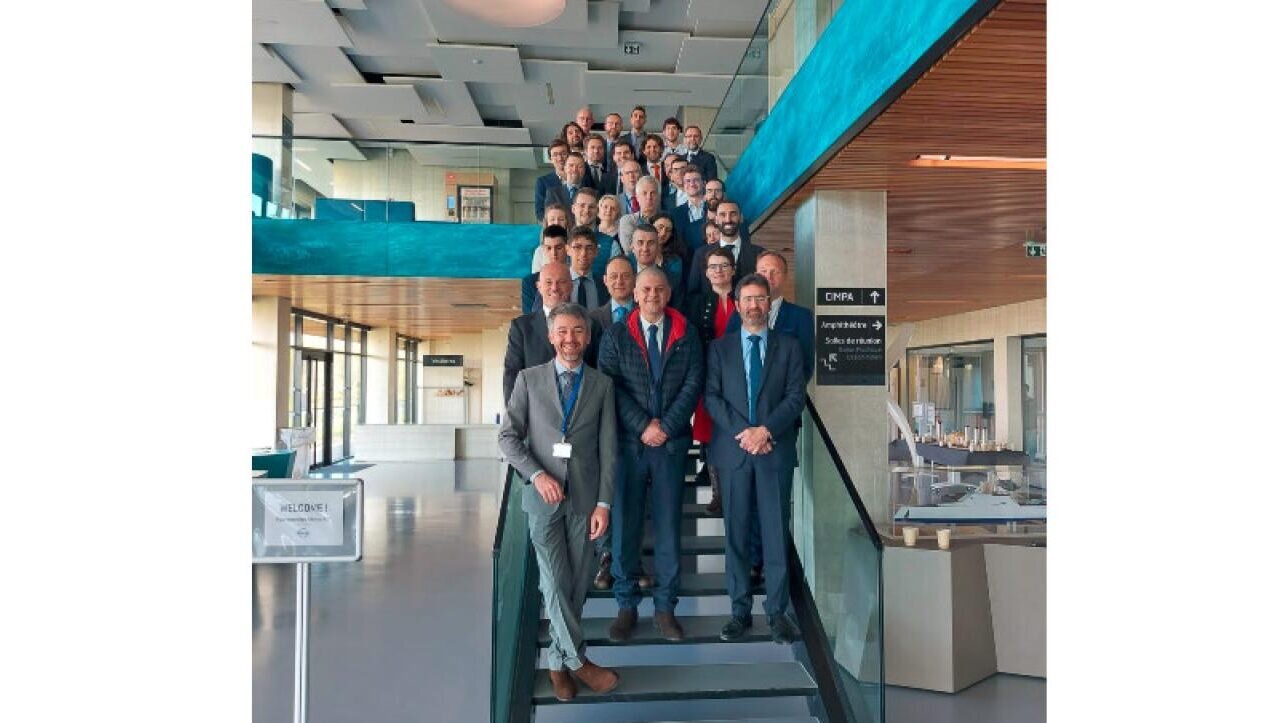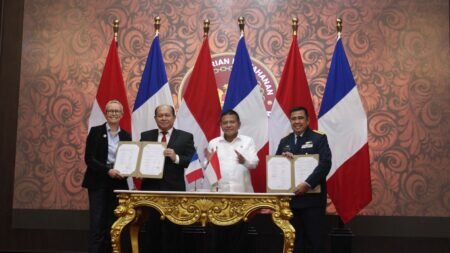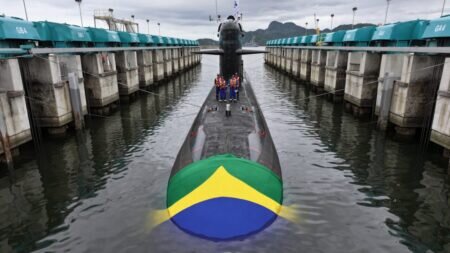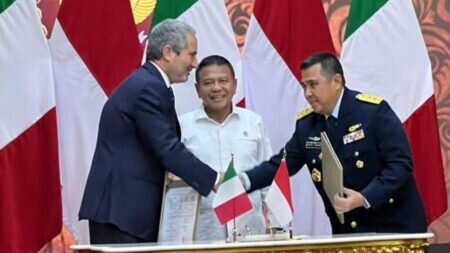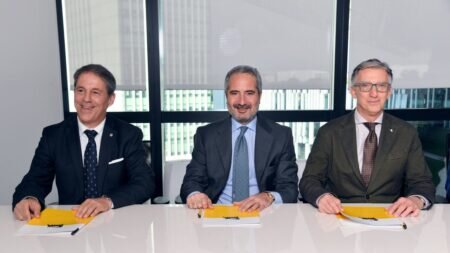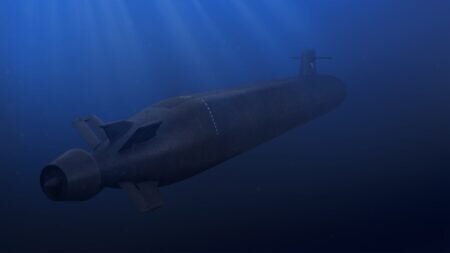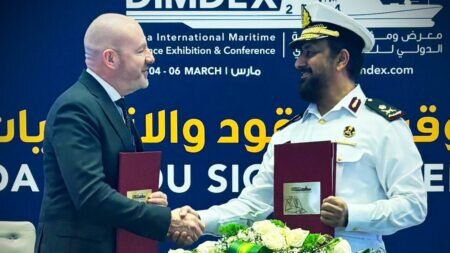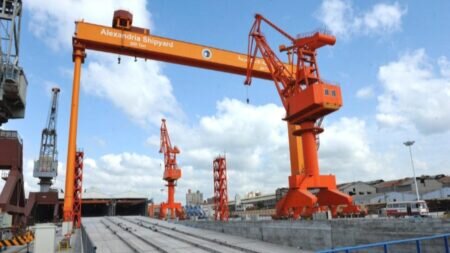The final demonstrations for the last study of the R&T Programme, related to Digital Ship, took place on November 22nd in Genova: a concrete result of the cooperation between Fincantieri and Naval Group, the parent companies of the Joint Venture NAVIRIS, for the benefits of France and Italy, represented by their Armament General Directorates (respectively DGA and SEGREDIFESA), who mandated OCCAR (Organisation for Joint Armament Co-operation) to manage the contract.
Signed on June 4th, 2020, the Naviris’ R&T programme contract marked the kick off of Naviris’ activities. Composed of 5 projects (*), it has set the foundation of the competitiveness of the Joint Venture and has been a fundamental enabler of the cooperation between Fincantieri and Naval Group. The last project focuses on “Digital Ship” and aims at developing warship simulation capabilities throughout its whole lifecycle in order to better predict performances and reduce the amount of real testing, to optimize architecture and to help warship operational use.
The aim of the demonstrations was to present the results of the “Digital Ship” study topic and their applicability.
The meeting has been focused on the presentation of all the developments and the validation of calculation methodologies and tools carried out in the frame of the “Digital Ship”.
Naviris and OCCAR expressed their deep appreciation to the entire integrated team comprising Fincantieri and Naval Group technicians for their involvement in these demonstrations, for the richness of the results achieved and for the demonstrations that took place earlier for the other study topics. These presentations demonstrated a great degree of cooperation and integration of the team, a good baseline for future cooperation and the use of these developments for future naval programmes (both the technologies and the use of the developed software).
The 5 study projects composing Naviris’ R&T programme are:
Digital ship: the project aims at developing ship simulation capabilities throughout the whole lifecycle in order to better predict performances and reduce the amount of real testing. It covers the development of tools and methodologies for early design, system engineering (requirements and functional domains management) tools and integrated multi-physical modelling and simulation. Current Naval Group and Fincantieri’s approaches of physical modelling are complementary, as Naval Group relies on Computational Fluid Dynamics while Fincantieri’s approach is based on perfect fluid panel methods. Such a complementarity could allow both groups to benefit from a wider know-how and strengthen their capabilities in this field.
Energy consumption optimization of electrical architecture: energy optimization enables a higher autonomy in mission, a better fleet management, an accurate forecast of next needed replenishment or working potential to optimize maintenance period, the compliance with restrictive Environmental Rules on emissions. Fincantieri and Naval Group have already initiated cooperation in this area to improve the global efficiency of the electrical network on board surface vessels.
Winning a sea state: the objective of the project is to improve the range of use of onboard systems thanks to better ships seakeeping and to enable an equivalent level of performances on “sea state” higher than currently possible. This applies to all critical performances, e.g. crew performance in high sea state, aviation (including helicopter), weapons and sensors operation and performance / accuracy, replenishment at sea, launching and recovery of boats and drones.
Fuel cells: the use of Air-Independent solutions built by both companies has led to the design of fuel cell solutions, of which the use on surface vessels has been discussed in depth. As both companies are involved in projects embarking an Energy network powered by fuel cells, the intended collaboration aims at gathering the two projects into a single sailing platform devoted to proving the feasibility of such a concept for naval applications in areas where no-emission restrictions are set.
Factory of the Future: the project relates to the use of digital and robotic technologies to boost shipyard’s competitiveness through increased productivity, reduced time-cycles, enhanced quality of products and improved working conditions for tough tasks. Fincantieri and Naval Group have already started tackling these challenges with approaches presenting both similarities and complementarities. In particular, Fincantieri is studying mobile technologies to enhance yard operators and managers’ productivity, while Naval Group aims at using digital technologies to boost the efficiency and effectiveness of the shipyard’s operator; both these technologies rely on connectivity technologies (e.g., Wi-Fi), digital mock-ups on tablets, and virtual/mixed reality. Clear benefits would arise from the joint development by Fincantieri and Naval Group.

